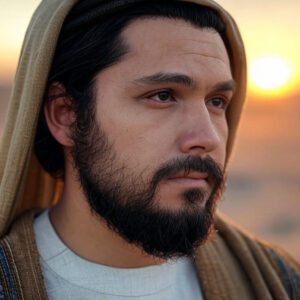Four  buddies were all enrolled in a university class on American history. They did so well on all the quizzes, midterms, labs, term papers, etc., that each had an A for the semester. These four friends were so confident about the finals approaching that the weekend before the big test they decided to go to a neighboring town and party with some friends there. They had a great time, but because of all the partying, they slept all the next day and completely missed their exam. To avoid failing, they decided to find their professor and tell him why they had missed the test. The excuse they agreed upon was that on their return trip to the university, they had a flat tire and they had no spare. Consequently, it took some time to get assistance. As a result, they returned after the test was over.
buddies were all enrolled in a university class on American history. They did so well on all the quizzes, midterms, labs, term papers, etc., that each had an A for the semester. These four friends were so confident about the finals approaching that the weekend before the big test they decided to go to a neighboring town and party with some friends there. They had a great time, but because of all the partying, they slept all the next day and completely missed their exam. To avoid failing, they decided to find their professor and tell him why they had missed the test. The excuse they agreed upon was that on their return trip to the university, they had a flat tire and they had no spare. Consequently, it took some time to get assistance. As a result, they returned after the test was over.
The professor looked them over and finally agreed they could make up their final exam the following day. The guys were elated and relieved. They studied hard that night and came prepared for the test the next day. The professor placed them each in a different room and handed each a test booklet. The first problem was worth 5 points and was about the Emancipation Proclamation. “Cool,” they each thought, “this test is going to be a breeze.” Each finished the first question quickly and then turned the page. On the second page was written: Question 2 (for 95 points): “Which tire?”
Telling the truth is becoming a lost art in our society. Lying habits begin with little children and seem to grow with age. Scripture repeatedly impresses upon us the importance of honesty. Without it, homes become dysfunctional, churches flounder, and entire societies crumble.
There is one little-known person in Scripture who shows us how we should be truthful regardless of the circumstances. Jehoshaphat, king of Judah, came to Ahab, king of Israel, and Ahab asked him to join forces and attempt to recapture the city of Ramoth Gilead. Both kings agreed to ally themselves in this endeavor. However, Jehoshaphat suggested that before they enter battle, they inquire of the prophets as to the outcome. About four hundred prophets of Ahab all agreed that this was to be an easy victory, but Jehoshaphat was still not satisfied. “How about a prophet of the Lord?” he asked. Ahab answered, “There is still one man through whom we can inquire of the Lord, but I hate him because he never prophesies anything good about me, but always bad” (1 Kings 22:8). Nevertheless, a messenger was sent to fetch Micaiah. The messenger suggested to him, “Look, as one man the other prophets are predicting success for the king. Let your word agree with theirs, and speak favorably” (22:13). But Micaiah answered, “I can tell him only what the Lord tells me” (22:14).
When Micaiah arrived, Ahab asked what he thought was the possibility of victory. Micaiah told him, “Attack and be victorious” (22:15). But Ahab knew he was withholding the truth, so he asked Micaiah to tell him what he really thought. Micaiah answered that he saw God’s army losing their leader and going home in defeat. Ahab complained to Jehoshaphat, “Didn’t I tell you that he never prophesies anything good about me?” (22:18).
Micaiah continued, “The Lord has put a lying spirit in the mouths of all these prophets of yours. The Lord has decreed disaster for you” (22:23). Micaiah added that not only would there be defeat of God’s army, but Ahab would die in the battle. The last thing Micaiah said to Ahab was, “Mark my words” (22:28).
Honesty is still the path the Lord would have us travel. Sometimes it hurts, sometimes it’s unpopular, and sometimes it may cause us to stand all alone, yet the Lord promises that the “Truth will set you free” (John 8:32).
Lord, help me to be honest in everything I do today. Amen.
